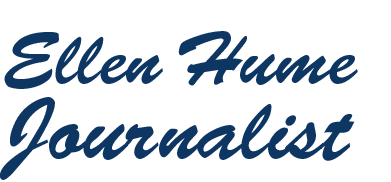REPORTS & MONOGRAPHS
Caught in the Middle: Central and Eastern European Journalism at a Crossroads
Executive Summary
Journalists in Central and Eastern Europe are struggling to hold on to the gains they made in
the first two decades after communism. Now the momentum is going the other way as more autocratic leaders find ways to manage or discredit the independent news media. Ethical journalists in this region face a triple threat: a backsliding against the 1990s democratic reforms, a global Internet-driven erosion of the media business model, and the continuing world economic crisis that is exposing the fragility of democratic institutions.
The media are pluralistic in Central and Eastern Europe, a major improvement from the lockstep pre-1989 propaganda of the Communist regimes. As a “technology of freedom,”1 the Internet creates more opportunities for diverse, democratic, and horizontal flows of information. As long as websites enjoy a low threshold of investment and few regulations, they can be havens for free speech and accountability journalism.
But the region lags behind the more developed democracies in Internet use, even as it outpaces the countries of the former Soviet Union. Few websites publish original news content; most
are aggregators or social network sites. Investigative journalists still need the megaphone of mainstream media organizations to give investigative stories audience and impact. The Internet’s positive force is still unrealized in Central and Eastern Europe, because of limited access, the economic disruption it is creating for accountable journalism, and now, at least in Hungary, new government regulation. In some places, it is more the province of the far-right racist factions than the mainstream reformers.
Particularly as journalism transitions to new digital, mobile, and Internet formats, Central and Eastern European countries need to experiment with new business and usage models and find strong advocates for independent media. Instead, the current economic, political and social momentum is pushing journalists toward sensationalized and partisan tabloid content that does little to earn respect for accountability journalism or engage citizens about important issues. Some nationalistic governments are seeking to co-opt media independence in all of its forms. Some of the best independent journalists are being driven to work for quixotic websites with little audience and no money.
Media ownership is a paramount issue in the region, especially in Romania, where five oligarchs hold sway, with little interest in good journalism, and in Latvia, where the one strong daily paper has been sold, after 20 good years, to a politically ambitious local businessman. A pattern has developed in the region: The international media investors such as Rupert Murdoch and Ronald Lauder, who developed the new marketplace for private media after communism fell, are selling out to local entrepreneurs who are interested in harvesting the political potential of these now- established media venues.
European Union (EU) accession prompted a flurry of press freedom laws that remain on the books in most of these countries but are not workable without constant vigilance and activism.
Organizations like the Hungarian Civil Liberties Union, the Latvian Open Society Institute, and the Romanian Center for Independent Journalism are holding their fingers in the dike but are not getting much help from either EU or other Western media developers, who are triaging their aid, moving to the hot zones in the Caucasus, Central Asia, and Africa.
Public broadcasters, buffeted by political pressure and tabloid competition from private channels, are in a downward spiral, with declining audiences and budgets. Some scholars question their survival, but others hope that digitizing their channels will breathe new life into public media.
On the bright side, each country studied has pluralistic media options, and continues to produce investigative journalists of fierce integrity and great skill. Gazeta Wyborcza in Poland remains a strong newspaper and website, with quality journalism and respect throughout the region, even if Polish public television has become a tabloid mess. The Czech Republic still has some effective news organizations and an independent public television news division. Unlike during Communist times, or the still frozen autocracies to the East, journalists in Central and Eastern Europe are able to stay alive and out of jail while uncovering information and publishing it
to hold the powerful accountable, even if it is only on a niche website to an elite audience. Such Web-based news organizations, like Latvia’s Ir.lv, the Czech Republic’s Aktuálně.cz, and Hungary’s, www.hirszerzo.hu and oknyomozó.hu, are worth watching.
Finally, it is clear that the media developers contributed a lot, and learned a lot, but moved away from Central and Eastern Europe too soon. They should consider new initiatives both regionally and nationally, to support:
- Investigative journalism projects with genuine public importance and ethical boundaries.
- Journalism associations that stress professionalism and counteract the political elites ’dismissal of journalism’s value.
- Media criticism publications that hold journalists, owners, and politicians accountable to the public.
- Media literacy training, as well as a larger curriculum that stresses the rights and obligations of citizens in a democracy.
Citizen journalism, mobile communications technology, and social networks carry much hope, and often journalists who are laid off or who leave in protest over political interference migrate to independent news websites. But like nearly everywhere else, their value in sustaining independent accountability journalism remains uncertain. Their future will depend not only on finding new forms of economic support, but on finding new political support from publics that believe in and are willing to stand up for independent watchdog media. Until these two factors strengthen, the best journalists in Central and Eastern Europe remain caught–“wandering between two worlds, one dead, the other struggling to be born.”
